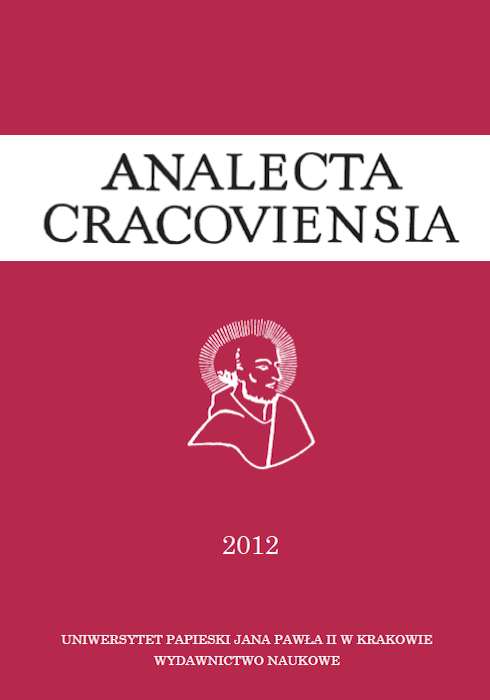Oblicza dialogu wychowawczego w świetle adhortacji apostolskiej Familiaris consortio a wychowanie w rodzinie
DOI:
https://doi.org/10.15633/acr.8Słowa kluczowe:
Catholic Church, consecration, liturgy, theology, virginityAbstrakt
The article deals with the subject of searching the nature of the consecrated virginity in the Church. This analysis is based on the theological and liturgical aspects defined by Ordo Consecrationis Virginum and Ordo Professionis Religiosae. Therefore we take the assumption that the most appropriate criterion of its interpretation in the Christian reality can be found in the principle: lex orandi – lex credendi. From this perspective the consecrated virginity is perceived as positive reality as far as faith celebration is concerned. The liturgy describes virginity as a gift offered to man by God’s people. Faith is also a prize and through the liturgy it is able reach its highest point. Virginity glorified in the Christian reality becomes a present as well as it is not only connected with but also filled with faith. Virginity consecrated under liturgical circumstances gains both ontological and dynamic features typical of worship. This sequentially allows to understand that virginity is not simply the result of ascetic effort, nor it is the physical adornment of a believer. In fact it spreads on the whole person who is being revived by sacraments. It makes them improve by personal commitment marking their route through the history of salvation.Pobrania
Opublikowane
2012-12-31
Numer
Dział
Z zagadnień teologicznych
Licencja
Prawa autorskie (c) 2012 Władysław Kądziołka

Praca jest udostępniana na licencji Creative Commons Attribution-NonCommercial-NoDerivatives 3.0 Unported License.
Obecnie autorzy publikujący w czasopiśmie udzielają jego wydawcy zgody o następującej treści:
- Autor zachowuje autorskie prawa majątkowe do utworu, a jednocześnie udziela wydawcy czasopisma zgody na jego pierwszą publikację w wersji drukowanej i wersji online na licencji Creative Commons Uznanie autorstwa 4.0 Międzynarodowe oraz zgody na wykonywanie opracowań, w tym przekładów.
- Autor ma możliwość udzielania zgody niewyłącznej na opublikowanie utworu w wersji, która ukazała się w czasopiśmie (np. zamieszczenia go w repozytorium instytucjonalnym lub opublikowania w książce), wraz z informacją o jego pierwszej publikacji w czasopiśmie.
- Autor może umieścić swój utwór online (np. w repozytorium instytucjonalnym lub na swojej stronie internetowej) jeszcze przed zgłoszeniem utworu do czasopisma.

